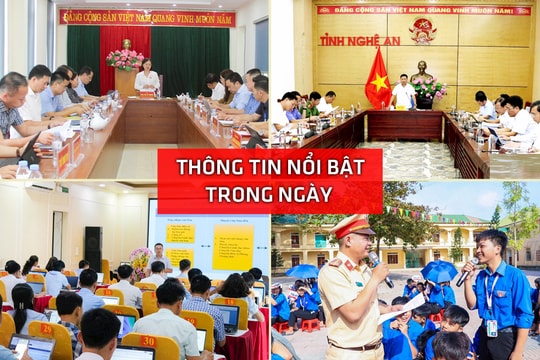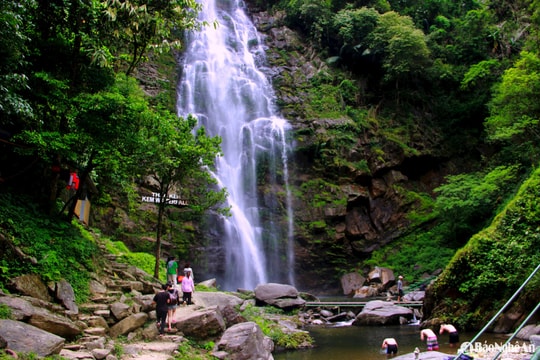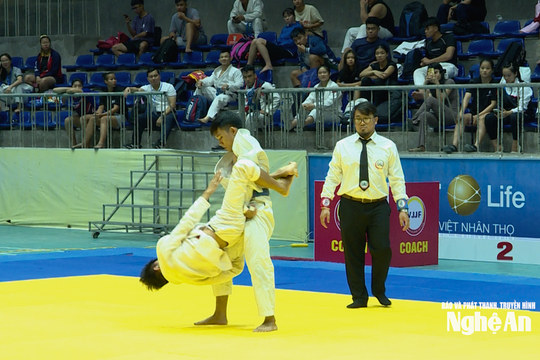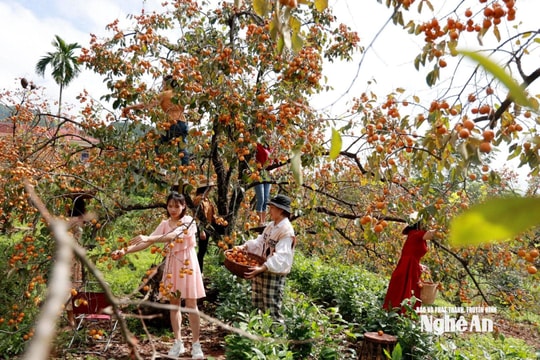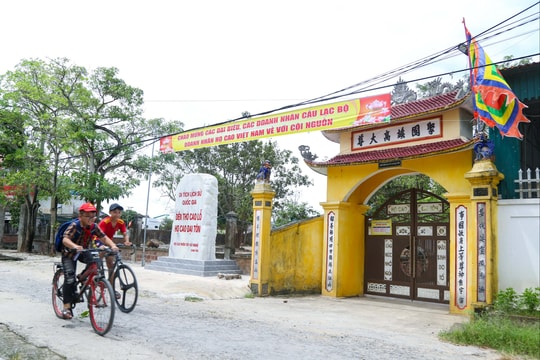National Assembly delegates are outraged by the situation of illegal tour guides.
On the afternoon of November 18, discussing the revised Tourism Bill, many delegates expressed concern that the illegal tour guide situation is having a major impact on Vietnam's tourism industry.
Assessing that Vietnam's current tourist guides are "both lacking and weak", delegate Trieu Thanh Dung cited data that the country has only 9,500 international tour guides and over 7,000 domestic tour guides. Meanwhile, the number of international visitors to Vietnam is about 8 million and domestic tourists is up to 45 million per year.
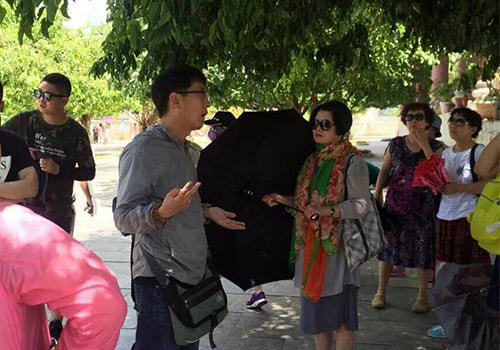 |
| A Chinese tour guide distorted Vietnamese history while leading a group of Chinese tourists to Linh Ung Pagoda. Photo: Provided by Chinese tour guide. |
Delegate Dung pointed out the weaknesses in the level of knowledge, communication skills, foreign languages, situation handling, etc. of tour guides and said that one of the reasons for the above limitations is unprofessional training. Most tour guides do not intend to work long-term, so they do not have the motivation to strive for perfection.
According to delegate Dung, due to many shortcomings in management, the number of illegal tour guides is increasing. There are illegal tour guides who are foreigners, speak foreign languages, use foreign currency and distort Vietnamese history and culture, as in the case in Da Nang. This is not the first case of foreign tour guides distorting Vietnamese history and culture.
“Da Nang has about 60 Chinese tour guides operating illegally in the area. More seriously, most of the travel companies that accept Chinese tour groups are registered under the name of Vietnamese people to ensure legal procedures, while the operations are run by Chinese people,” the delegate reflected.
Agreeing with the above comment, delegate Doan Thi Thanh Mai said that in the current context of integration, high-quality labor force with good foreign language skills from neighboring countries will flood into Vietnam and Vietnamese tourism human resources may lose their jobs right at home. Therefore, this law needs to design specific requirements for training tourism human resources.
Citing examples of "ripping off" customers such as "during the recent 2016 Tet holiday, tourists had to pay 700,000 VND for a crab and 500,000 VND for a coconut after finishing their meal", delegate Mai said that such acts tarnish the image of Vietnamese tourism, cause public outrage, and cause the rate of international visitors returning to only about 10%.
“It is necessary to create a legal framework to strictly handle violations such as solicitation, price gouging for services, property theft and foreign tourists violating the law,” delegate Mai suggested.
In response to the comments, Minister of Culture, Sports and Tourism Nguyen Ngoc Thien said that the approach to drafting the law this time is to change to a softer one. That is, to replace prohibitions with state management and economic tools.
As proof of the flexibility in the law, Minister Thien said that in the world, there are only very few countries that require the ranking of accommodation establishments. In Asia, only China requires the ranking, but it is not included in the law. Therefore, this draft changes the mandatory ranking to voluntary.
With the shortage of tour guides, the Minister of Culture and Information said that currently, both domestic and international tour guides only meet one-third of the actual demand. “Not all, but that is one of the reasons for the emergence of illegal tour guides,” the Minister said.
According to VNE

